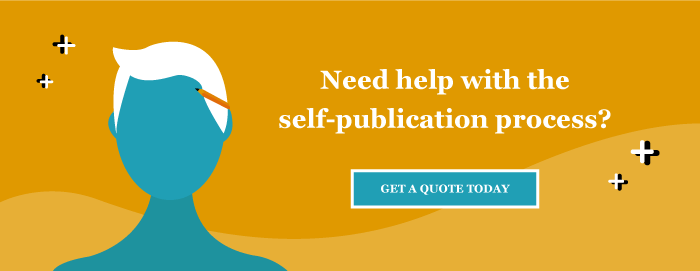When you reach the point that your manuscript is ready for publishing, you must decide which publishing route you wish to take—the traditional path or the self-publishing path. Whether or not you will need a literary agent rests almost entirely on that decision.
When you opt for traditional publishing, you will be introduced to the query process, or the effort you will make to persuade a publishing house to represent your book project. However, most midsize to large publishers will not accept unsolicited queries, which leads us to the role of the literary agent and your next question, “Do I need a literary agent?” Continue on for helpful answers to this question.
What Does a Literary Agent Do?
The literary agent acts as the liaison between a writer and a traditional publishing house. These professionals know the publishing world’s ins and outs and have honed their instincts about which types of books will be commercially successful. They are in this role to earn commissions from the sale of manuscripts to publishers, plus a cut from all future earnings the books generate post-publication.
Because of the literary agent’s intimate knowledge of the industry and their connections, they are able to zero in on the most appropriate publishing houses for your book project. Once they land an interested publisher, they engage in the contract negotiation process between author and publisher. Once a deal is struck, they receive their commission.
Do I Need an Agent to Publish a Book?
If you choose to take the traditional publishing pathway, you will need a literary agent to represent your interests. The agent becomes your advocate, the go-between between you and the publisher. As your agent, they are tasked with first finding a publisher for your project, then negotiating a favorable contract, and in many ways guiding your writing career.
Authors of poetry, short story collections, or art books, however, will quickly learn that literary and author agents willing to represent these genres are a rare find. This is because these books do not historically generate enough sales to make them worth the agent’s time and effort. In this event, if seeking the traditional publishing route, you would turn your sights toward small boutique publishing houses that will accept your query directly. These small publishers are also about the only ones willing to accept queries directly from authors, regardless of genre.
Authors who have decided to take the self-publishing route do not need a literary agent. This is due to the author taking responsibility for all aspects of getting their book project published. These responsibilities include ensuring that their manuscript is ready for publication, uploading it on online bookseller platforms, and marketing the heck out of it to direct potential customers to the book’s listing. If that sounds a tad intimidating, aspiring authors may want to enlist the expertise of a self-publishing service.
How Much Do Literary Agents Cost?
If you choose to take the traditional publishing route, you may wonder how much to budget for an author agent. It is important to know that no reputable literary agent will request upfront fees. Agents are paid only after securing a contract and selling an author’s manuscript to a publisher
At the point of sale, the agent receives a 15% commission on any advance paid to the author and then on the book’s subsequent sales in all its formats going forward. This calculates to $150 per $1,000, so if an author receives a $10,000 book advance, the agent gets a $1,500 commission.
A Cost-Efficient Alternative: Self-Publishing
When an author realizes the cut an author agent takes can be potentially sizable, they may want to explore the self-publishing option. Self-publishing is exactly what the term implies—the author bypasses the traditional publishing process and takes the reins to handle the entire book publication process themselves.
Self-publishing has many attractive benefits compared to traditional publishing:
- Bypass the query process with agents or publishers
- A much shorter timeframe to get the book published
- Retain full creative control over the project
- Higher royalties per unit sold
Self-publishing typically, but not always, does include some upfront costs. An author can indeed write and upload an eBook onto a retail platform at zero cost. However, most successful self-published authors understand the need for editing and proofreading services and book and cover design expertise. Once the book is published, the royalties paid per unit sold will far exceed those paid by a traditional publisher.
Bypass the Need for an Agent By Self-Publishing Your Book
Author agents play an essential role in the overall book publishing landscape. Having a literary agent in your corner can open doors and move your writing career ahead. But actually landing an agent is a very difficult, time-consuming, and tedious effort that many an author has not successfully navigated.
If you believe in your book and want to move full steam ahead to get it in front of readers, consider self-publication. With the guidance of the team of experts at Gatekeeper Press, you can make your dream of authorship a reality. Contact Gatekeeper Press to publish your manuscript!


